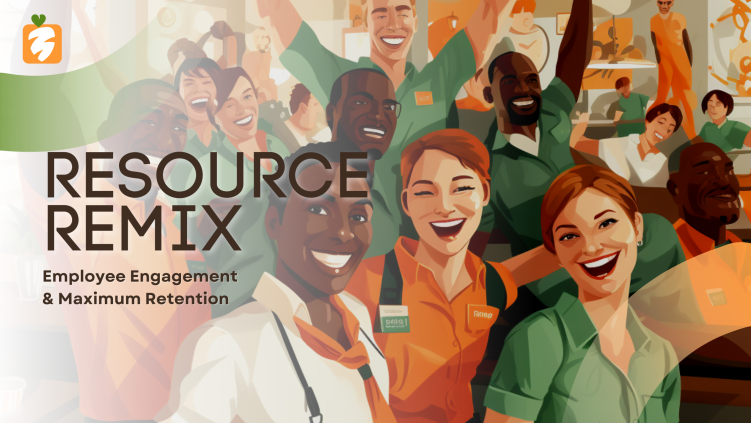Does turnover affect revenue?
Kyle Bagley • August 3, 2023
Yes, employee turnover can indeed affect revenue for restaurants. Employee turnover refers to the rate at which employees leave a company and are replaced by new hires. High turnover rates in the restaurant industry can have both direct and indirect impacts on revenue:
1. Training Costs: High turnover means that restaurants frequently need to hire and train new employees. Training new staff can be time-consuming and costly, as it requires resources to onboard and familiarize them with the restaurant's processes and standards. This expenditure can affect the overall profitability of the restaurant.
2. Reduced Efficiency: Frequent turnover disrupts the team's cohesion and can lead to inefficiencies in operations. New employees may take time to adjust, leading to decreased productivity and potentially negatively impacting service quality and customer experience. Lower customer satisfaction may result in reduced repeat business and word-of-mouth referrals, affecting revenue.
3. Knowledge and Experience Loss: When experienced employees leave, they take with them valuable knowledge about the restaurant's procedures, customer preferences, and operational insights. Losing this knowledge can hinder the restaurant's ability to maintain consistency and respond effectively to challenges, potentially impacting revenue.
4. Impact on Employee Morale: High turnover can affect the morale and motivation of remaining employees. Constantly seeing their colleagues leave can create a negative work environment and result in reduced employee engagement and commitment. Disengaged employees may not provide the level of service needed to attract and retain customers, leading to revenue loss.
5. Training Quality and Consistency: Frequent turnover can also impact the quality and consistency of employee training. With a constant influx of new hires, the training process might become rushed or incomplete, leading to inconsistent service and potentially dissatisfied customers.
6. Customer Loyalty: High employee turnover can lead to a lack of familiar faces for customers. Regular customers often develop relationships with familiar staff, and when those employees leave, it may affect customer loyalty and frequency of visits, thus impacting revenue.
However, it's essential to note that the impact of turnover on revenue can vary based on the specific circumstances of each restaurant, such as the magnitude of turnover, the reasons for employee departures, the effectiveness of recruitment and training processes, and the overall management practices.
To mitigate the negative effects of turnover on revenue, restaurants can focus on employee retention strategies, such as offering competitive wages and benefits, providing opportunities for career growth, improving work-life balance, fostering a positive work culture, and investing in comprehensive training programs. By prioritizing employee satisfaction and well-being, restaurants can reduce turnover, enhance operational efficiency, and positively influence their revenue.

By Kyle Bagley
•
July 27, 2023
Welcome to the CAREit blog, your go-to resource for creating engagement and commitment in the workplace. Are you ready to align resources to cultivate a culture of loyalty? Today, we will explore strategies to enhance employee engagement and retention, empowering your workforce for long-term success. 1. Emphasize Individual Goals Acknowledging and nurturing the personal aspirations of your employees can have a profound impact on their satisfaction and dedication to their roles. As employers, investing time in understanding each employee's unique interests enables you to develop tailored plans that recognize and reward hard work effectively. 2. Cultivating Effective Rewards Systems Moving beyond traditional reward systems creates an engaging and exciting environment where employees feel appreciated for their efforts. Furthermore, fostering a culture of mentorship allows skilled workers to step into leadership roles, bridging gaps within the teams and contributing to their growth. This not only builds teamwork but also boosts productivity and commitment to the company's long-term goals. Imagine a team that not only excels in performance but also remains deeply committed to the company's vision because they know their well-being is a priority! 3. Embrace Flexibility as the Foundation In the modern workforce, flexibility is increasingly valued as a key factor in job satisfaction. Embracing a growth mindset that allows for both linear and vertical progression empowers employees to develop at their own pace. By moving away from an heavy handed approach and embracing the concept of rewarding work, you build trust and promote a healthy work-life balance. Granting employees the autonomy to reward themselves for their hard work not only demonstrates trust but also fosters an environment where they can thrive. 4. Redefine, Reward, and Recognize One-size-fits-all approaches to reward and recognition are no longer effective. Today's workforce seeks personalized recognition initiatives that align with their preferences and interests. Tailoring rewards adds a personal touch and helps boost productivity and loyalty within the organization. Final Note: Growing genuine connections among team members creates a positive and collaborative work atmosphere where innovation and hard work flourish. A close-knit work family is more likely to remain committed, propelling your organization toward greater success. Embracing individual learning, offering flexibility, and recognizing employees for their hard work ensures a strong and enduring relationship between your organization and its employees. And what better way to achieve this than through an app that caters to all these needs? The CAREit app allows employees to set and achieve their goals while providing immediate rewards for their efforts. Imagine the impact it had on four Taco Bell employees who received a $300 bonus each - an immediate $2.50 raise - all because they felt inspired to work in a way that was rewarding for both them and the organization. Schedule a demo today to learn more about how to adopt a culture of cultivation within your company. With CAREit, you can foster engagement, commitment, and loyalty, creating a thriving and resilient workforce. Book a Demo today at www.careit.work #actlikeyoucareit

By kb
•
March 23, 2022
So, you can officially say that you built your company from the ground up. Or perhaps you were the mastermind who revived a dying business. Maybe you simply know what you want… and maybe what you want is just to reach your goals despite whatever obstacles might come your way. Whatever your situation may be, it’s important to employ the best, most effective strategies to support you as you strive to reach your goals. This article will explore a few of the best, simplest, and most impactful strategies to help you do just that.

March 23, 2022
What is it that those high-performing companies are doing that make them so successful? Is it the atmosphere of their workplaces? Is it the leadership? This article does not cover an exhaustive list of dos or don’ts to check off a list to grow a successful business, but it does provide a look into what makes some companies more successful than others. Let’s take a look at what it looks like to grow by returning the basics.

By kb
•
March 23, 2022
It’s all in the research. Time after time, it has been proven that employees who are happier at work stay longer. This helps to reduce turnover costs for business owners. With CAREit’s corporate-style incentive programs, cash bonuses act as rewards for hard work. This app allows for higher levels of communication, efficiency, and retention.

By kb
•
March 23, 2022
Have you ever wondered if there are ways you can make your employees feel more valued? Do you want to figure out how to make them feel respected, and even needed? Here are a few questions you can ask your employees to help them feel like working for their company is exactly what they need to be doing. These questions can also help you to build trust with your employees.








